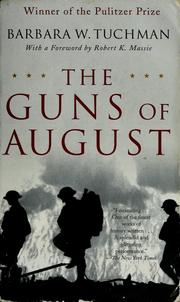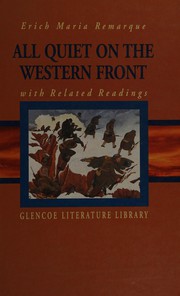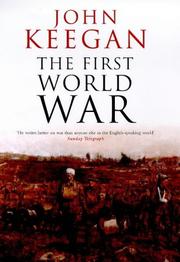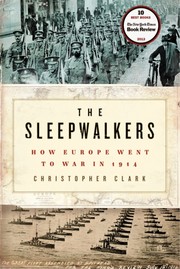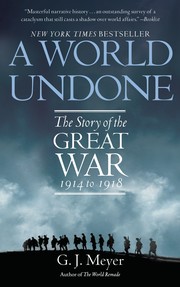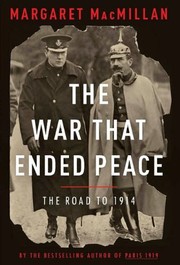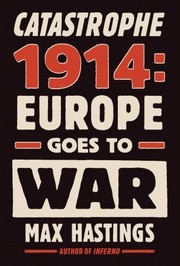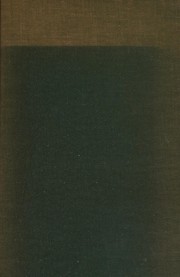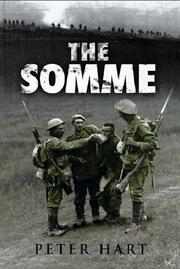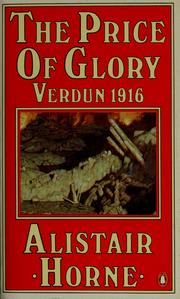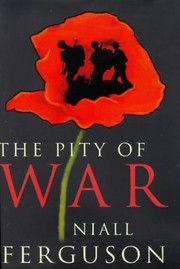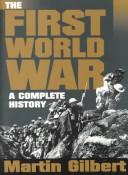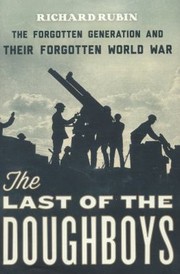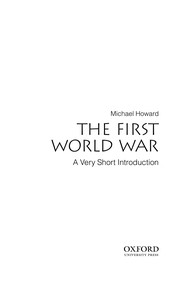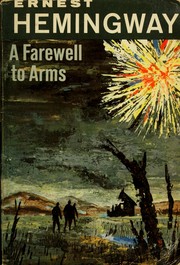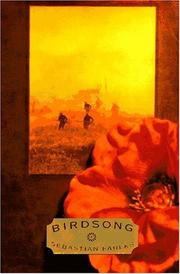Are you fascinated by the history of World War I and looking for a gripping read? Look no further! We’ve curated a list of the 20 best books about WWI that will transport you back to the harrowing days of trench warfare, the bravery of soldiers, and the global impact of the Great War. Whether you’re a history buff or just looking for a compelling story set in this pivotal period, there’s a WWI book on this list that’s perfect for you.
Contents
- 1 20 Best Books About Wwi
- 2 The Guns of August
- 3 All Quiet on the Western Front
- 4 The First World War
- 5 The Sleepwalkers: How Europe Went to War in 1914
- 6 A World Undone: The Story of the Great War, 1914 to 1918
- 7 The War That Ended Peace: The Road to 1914
- 8 The Great War and Modern Memory
- 9 Catastrophe 1914: Europe Goes to War
- 10 The Zimmermann Telegram
- 11 The Somme: The Darkest Hour on the Western Front
- 12 The Price of Glory: Verdun 1916
- 13 The Beauty and the Sorrow: An Intimate History of the First World War
- 14 The Pity of War: Explaining World War I
- 15 The First World War: A Complete History
- 16 The Great War: A Combat History of the First World War
- 17 The War to End All Wars: World War I
- 18 The Last of the Doughboys: The Forgotten Generation and Their Forgotten World War
- 19 The First World War: A Very Short Introduction
- 20 A Farewell to Arms
- 21 Birdsong
- 22 Conclusion
- 23
- 24 Best Books About Nuclear War. 2024 Edition
- 25 The 20 Religion And Science Books: Best 2024 Update and Review
- 26 Reading List of Equality Books – 2024 Update
20 Best Books About Wwi
The Guns of August
by Barbara W. Tuchman
The Guns of August, a book on WWI by Barbara W. Tuchman, provides a gripping account of the critical first month of the war. Tuchman vividly portrays the political and military leaders, the battles, and the strategic decisions that shaped the course of the conflict. With meticulous research and compelling storytelling, she brings to life the complex alliances, the mobilization of troops, and the deadly consequences of the war’s opening salvos. Tuchman’s narrative skillfully captures the tensions, miscalculations, and human dramas that unfolded in the summer of 1914, setting the stage for the cataclysmic events that followed. This WWI book is a masterful blend of historical analysis and dramatic storytelling, offering readers a profound understanding of the war’s origins and its devastating impact.
All Quiet on the Western Front
by Erich Maria Remarque
All Quiet on the Western Front, a renowned book about WWI, is a gripping and raw novel by Erich Maria Remarque. It follows the harrowing experiences of a group of German soldiers fighting on the Western Front during World War I. Through the eyes of the young protagonist, Paul Baumer, the reader is taken on a haunting journey through the brutal realities of war. Remarque’s powerful prose vividly captures the physical and emotional toll of battle, as well as the profound impact it has on the soldiers’ humanity and sense of self. This WWI book offers a poignant and thought-provoking exploration of the futility and devastation of war, making it a timeless and essential read for anyone interested in the human experience during times of conflict.
The First World War
by John Keegan
The First World War by John Keegan is a renowned book on WWI that provides a comprehensive overview of the Great War. Keegan delves into the causes, events, and consequences of the conflict, offering a gripping narrative that captures the scale and impact of the war. Through vivid storytelling and meticulous research, the author brings to life the experiences of soldiers, politicians, and civilians on all sides of the conflict. Keegan’s insightful analysis and engaging prose make this book about WWI a compelling and informative read for anyone interested in understanding the complexities of the war that shaped the 20th century. With its detailed accounts and deep exploration of the war’s impact, The First World War is a must-read for history enthusiasts and those seeking to gain a deeper understanding of this pivotal moment in global history.
The Sleepwalkers: How Europe Went to War in 1914
by Christopher Clark
The Sleepwalkers: How Europe Went to War in 1914 by Christopher Clark is a compelling and meticulously researched book about WWI. Clark examines the complex web of political, social, and military factors that led to the outbreak of the Great War, dispelling the myth that it was inevitable. Through vivid storytelling and detailed analysis, he explores the mindsets of the key players, the escalating tensions, and the series of miscalculations that ultimately plunged Europe into a devastating conflict. Clark’s narrative skillfully unravels the intricacies of the pre-war era, shedding light on the interconnected relationships between the major powers and the fatal decisions that propelled them towards the brink of war. The Sleepwalkers offers a fresh perspective on the events leading up to WWI, making it an essential read for anyone interested in understanding the complexities of this pivotal moment in history.
A World Undone: The Story of the Great War, 1914 to 1918
by G.J. Meyer
A World Undone, written by G.J. Meyer, is a comprehensive and engrossing book on World War I. Meyer skillfully weaves together the political, military, and social aspects of the conflict, providing a vivid and detailed account of the Great War from 1914 to 1918. With meticulous research and a compelling narrative, the book offers readers a deeper understanding of the complex geopolitical landscape, the strategies and tactics employed on the battlefield, and the profound impact of the war on societies around the world. Meyer’s masterful storytelling brings to life the key figures, battles, and events of the war, making A World Undone an essential read for anyone interested in delving into the history of this pivotal moment in global history.
The War That Ended Peace: The Road to 1914
by Margaret MacMillan
The War That Ended Peace: The Road to 1914 by Margaret MacMillan is a captivating book on the events leading up to World War I. MacMillan skillfully examines the political, cultural, and social dynamics that contributed to the outbreak of the Great War. Through meticulous research and engaging storytelling, she delves into the complex web of alliances, rivalries, and ambitions that shaped the geopolitical landscape of Europe in the early 20th century. With a keen understanding of the key figures and events, MacMillan provides readers with a comprehensive and thought-provoking analysis of the period, shedding light on the series of decisions and miscalculations that ultimately led to the devastating conflict. This book about WWI offers a compelling narrative that will appeal to history enthusiasts and anyone interested in understanding the origins of one of the most significant events in modern history.
The Great War and Modern Memory
by Paul Fussell
The Great War and Modern Memory, written by Paul Fussell, is a captivating exploration of the impact of the First World War on literature and culture. This groundbreaking book delves into the ways in which the experience of war shaped the modern consciousness, examining the profound influence of the conflict on the works of authors such as Wilfred Owen, Siegfried Sassoon, and T.S. Eliot. Fussell’s insightful analysis offers a compelling insight into the way in which the trauma of war permeated the collective psyche, shaping the artistic and literary output of the post-war era. Through a combination of literary criticism and cultural history, The Great War and Modern Memory provides a thought-provoking examination of the enduring legacy of the ‘war to end all wars’.
Catastrophe 1914: Europe Goes to War
by Max Hastings
Catastrophe 1914: Europe Goes to War by Max Hastings is a compelling and detailed account of the events leading up to and the outbreak of World War I. In this gripping wwi book, Hastings provides a vivid portrayal of the political, social, and military landscape of Europe in the years leading up to the war, offering insights into the complex web of alliances and rivalries that ultimately led to the cataclysmic conflict. With meticulous research and engaging storytelling, the book delves into the experiences of soldiers, civilians, and leaders on all sides of the conflict, offering a comprehensive and thought-provoking analysis of the war’s impact on Europe and the world. Catastrophe 1914 is a must-read for anyone interested in the history of the First World War, providing a rich and immersive understanding of this pivotal moment in history.
The Zimmermann Telegram
by Barbara W. Tuchman
The Zimmermann Telegram by Barbara W. Tuchman is a riveting account of a pivotal moment in World War I history. Tuchman masterfully weaves together the intricate web of international politics, espionage, and military strategy to bring to life the dramatic events surrounding the infamous Zimmermann Telegram. This book about WWI provides a gripping narrative of the secret communication that ultimately drew the United States into the conflict. Tuchman’s meticulous research and vivid storytelling make this WWI book a compelling and insightful read, shedding light on the complex dynamics of global diplomacy and the far-reaching consequences of wartime decisions. Readers will be captivated by the suspenseful twists and turns of this true-life espionage thriller, as Tuchman skillfully unravels the intrigue and intrigue of this pivotal moment in history.
The Somme: The Darkest Hour on the Western Front
by Peter Hart
The Somme: The Darkest Hour on the Western Front by Peter Hart is a gripping account of one of the most infamous battles of the First World War. This compelling book on WWI delves into the harrowing experiences of soldiers on both sides, as well as the strategic decisions and political implications that shaped the course of the conflict. Hart’s vivid storytelling and meticulous research bring to life the horrors and heroism of the battle, making it a must-read for anyone interested in the history of the Great War. Through personal accounts and historical analysis, this book about WWI provides a comprehensive and deeply moving portrayal of the events that unfolded on the Western Front. The Somme is a powerful and poignant WWI book that offers a profound understanding of the human cost of war and the enduring impact of this pivotal moment in history.
The Price of Glory: Verdun 1916
by Alistair Horne
The Price of Glory: Verdun 1916 by Alistair Horne is a gripping and meticulously researched book about World War I. Horne delves into the infamous Battle of Verdun, a brutal and protracted conflict that became a symbol of the futility and horror of WWI. Through vivid storytelling and insightful analysis, Horne brings to life the strategic blunders, human suffering, and political implications of this pivotal battle. He explores the experiences of soldiers on both sides, the leadership of generals, and the impact on French and German society. Horne’s compelling narrative and attention to detail make this book on World War I a must-read for history enthusiasts and anyone seeking to understand the profound impact of the Great War.
The Beauty and the Sorrow: An Intimate History of the First World War
by Peter Englund
The Beauty and the Sorrow: An Intimate History of the First World War by Peter Englund is a captivating book about WWI that offers a unique and personal perspective on the war. Through the use of letters, diaries, and memoirs, Englund weaves together the stories of twenty individuals from various countries who experienced the war in different ways. This book on WWI provides a deeply human portrayal of the conflict, delving into the emotions, thoughts, and experiences of those who lived through it. Englund’s skillful storytelling and meticulous research bring to life the complexities and tragedies of the war, offering readers a poignant and immersive understanding of this pivotal moment in history. The Beauty and the Sorrow is a compelling and thought-provoking WWI book that sheds light on the personal impact of the war and the resilience of the human spirit amidst unimaginable hardship.
The Pity of War: Explaining World War I
by Niall Ferguson
The Pity of War: Explaining World War I by Niall Ferguson is a captivating and insightful book about the Great War. Ferguson delves into the political, economic, and social factors that led to the outbreak of the conflict, challenging traditional views and offering thought-provoking analysis. Through meticulous research and engaging prose, the author paints a vivid picture of the war’s impact on nations and individuals, exploring its far-reaching consequences and long-term effects. This wwi book provides a comprehensive and compelling examination of the complexities of the war, shedding light on its causes and repercussions. Ferguson’s exploration of the human cost and the broader implications of the conflict makes this book about wwi a must-read for anyone interested in understanding the events that shaped the modern world.
The First World War: A Complete History
by Martin Gilbert
The First World War: A Complete History by Martin Gilbert is a comprehensive book about WWI that offers a detailed account of the events, causes, and consequences of the global conflict. Gilbert provides a vivid and engaging narrative that brings to life the complex political, social, and military aspects of the war. From the assassination of Archduke Franz Ferdinand to the Treaty of Versailles, the book on WWI covers all the key moments and influential figures of the war. With meticulous research and compelling storytelling, Gilbert offers a thorough examination of the Great War, making it a must-read for anyone interested in understanding the intricacies of this pivotal moment in history. This WWI book is a valuable resource for both scholars and general readers seeking to gain a deeper insight into the devastating impact of the war on the world.
The Great War: A Combat History of the First World War
by Peter Hart
The Great War: A Combat History of the First World War by Peter Hart is a captivating book about WWI that provides a detailed and gripping account of the global conflict that reshaped the world. Hart’s narrative skillfully weaves together the political, military, and personal aspects of the war, offering a comprehensive understanding of the events and the people involved. Through vivid descriptions and compelling analysis, the WWI book brings to life the key battles, strategies, and the human experience of the war, shedding light on the sacrifices and struggles of those who lived through this tumultuous period. With its meticulous research and engaging storytelling, The Great War is an essential read for anyone seeking to delve into the complexities and impact of the First World War.
The War to End All Wars: World War I
by Russell Freedman
The War to End All Wars: World War I by Russell Freedman is a compelling book about WWI that takes readers on a journey through the tumultuous and devastating events of the Great War. Freedman’s vivid and engaging storytelling brings to life the key players, battles, and turning points of this pivotal moment in history. Through powerful photographs, firsthand accounts, and detailed research, Freedman provides a comprehensive overview of the complexities and impact of the conflict. From the alliances and political tensions that ignited the war to the human cost and long-lasting consequences, this WWI book offers a gripping and insightful exploration of a defining period in modern history. The War to End All Wars is a must-read for anyone interested in understanding the profound impact of World War I.
The Last of the Doughboys: The Forgotten Generation and Their Forgotten World War
by Richard Rubin
The Last of the Doughboys: The Forgotten Generation and Their Forgotten World War by Richard Rubin is a captivating book about WWI that gives a voice to the last surviving American veterans of the Great War. Through extensive interviews and research, Rubin brings to life the experiences of these men who fought in the trenches and endured the horrors of the war. The book offers a poignant and intimate look at a generation that is often overlooked, shedding light on the enduring impact of the war on their lives. With rich storytelling and meticulous attention to detail, Rubin paints a vivid portrait of the soldiers and the world they inhabited, capturing the essence of a pivotal moment in history. The Last of the Doughboys is a compelling and essential read for anyone interested in the human stories behind the tumultuous events of the First World War.
The First World War: A Very Short Introduction
by Michael Howard
The First World War: A Very Short Introduction by Michael Howard is a compact and comprehensive book about the Great War. Howard provides a succinct overview of the key events, causes, and consequences of the conflict, making it an excellent introductory read for anyone interested in learning about the war. The book covers a wide range of topics, including the political and diplomatic tensions that led to the outbreak of the war, the experiences of soldiers on the front lines, and the far-reaching impact of the war on societies and economies around the world. Howard’s engaging writing style and expert analysis make this a must-read for anyone seeking to understand the complexities of the First World War. If you’re looking for a concise and informative wwi book, this is the perfect choice.
A Farewell to Arms
by Ernest Hemingway
A Farewell to Arms is a poignant novel by Ernest Hemingway set during the First World War, offering a raw and intimate portrayal of love and loss amidst the chaos of war. Hemingway’s spare and powerful prose captures the emotional and physical toll of the conflict, as well as the complexities of human relationships in the face of adversity. The novel follows the experiences of an American ambulance driver serving in the Italian army and his passionate love affair with a British nurse. The story unfolds against the backdrop of the wwi, depicting the harsh realities of war and the profound impact it has on individuals. A Farewell to Arms is a timeless classic that delves into the universal themes of love, sacrifice, and the devastating effects of war on the human spirit.
Birdsong
by Sebastian Faulks
Birdsong by Sebastian Faulks is a powerful and evocative novel that delves into the harrowing realities of World War I. The story follows Stephen Wraysford, a young Englishman who becomes embroiled in the brutality of trench warfare on the Western Front. Through Faulks’ exquisite prose, readers are transported to the battlefields of France, where they witness the devastating impact of war on individuals and society. The novel weaves together themes of love, loss, and the human spirit’s resilience in the face of unimaginable adversity. With its vivid portrayal of the horrors of the Great War, Birdsong is a compelling and poignant exploration of the human experience during this tumultuous period in history. It’s a must-read for anyone interested in delving into the complexities of the First World War.
Conclusion
Exploring the 20 best books about Wwi is a captivating journey through the history, emotions, and impact of the Great War. From personal accounts to detailed analyses, these books offer a comprehensive understanding of the conflict that shaped the 20th century. Whether you are a history enthusiast or a literature lover, these books provide valuable insights into the complexities of WWI and its enduring legacy.
Which Wwi book is best?
The best book on Wwi can vary with personal preference, but three widely recommended titles are:
- The Guns of August by Barbara W. Tuchman,
- All Quiet on the Western Front by Erich Maria Remarque,
- The First World War by John Keegan.
Each offers valuable insights and could be a great starting point.
What are the best books to learn about Wwi?
For those looking to learn about Wwi, there is a wealth of literature that can provide a comprehensive understanding of the subject. Some of the most highly recommended books include:
- The Guns of August by Barbara W. Tuchman,
- All Quiet on the Western Front by Erich Maria Remarque,
- The First World War by John Keegan,
- The Sleepwalkers: How Europe Went to War in 1914 by Christopher Clark,
- A World Undone: The Story of the Great War, 1914 to 1918 by G.J. Meyer,
- The War That Ended Peace: The Road to 1914 by Margaret MacMillan,
- The Great War and Modern Memory by Paul Fussell,
- Catastrophe 1914: Europe Goes to War by Max Hastings,
- The Zimmermann Telegram by Barbara W. Tuchman,
- The Somme: The Darkest Hour on the Western Front by Peter Hart
These books offer a range of perspectives on Wwi, covering various aspects and approaches to the subject.
What are the best books on Wwi?
The best books on Wwi include:
- The Guns of August by Barbara W. Tuchman,
- All Quiet on the Western Front by Erich Maria Remarque,
- The Price of Glory: Verdun 1916 by Alistair Horne,
- The Beauty and the Sorrow: An Intimate History of the First World War by Peter Englund,
- Catastrophe 1914: Europe Goes to War by Max Hastings,
- The War That Ended Peace: The Road to 1914 by Margaret MacMillan.
Each offers unique insights into the subject. While these books on the topic of Wwi are highly regarded, it’s important to note that any list of ‘best’ books is subjective and reflects a range of opinions.
What are the best Wwi books of all time?
Choosing the best Wwi books of all time can vary depending on who you ask, but seven titles that are often celebrated include
- The Guns of August by Barbara W. Tuchman,
- All Quiet on the Western Front by Erich Maria Remarque,
- A World Undone: The Story of the Great War, 1914 to 1918 by G.J. Meyer,
- Catastrophe 1914: Europe Goes to War by Max Hastings,
- The Somme: The Darkest Hour on the Western Front by Peter Hart,
- The Beauty and the Sorrow: An Intimate History of the First World War by Peter Englund,
- and The Price of Glory: Verdun 1916 by Alistair Horne.
Each of these books has made a significant impact in the field of Wwi and continues to be influential today.

